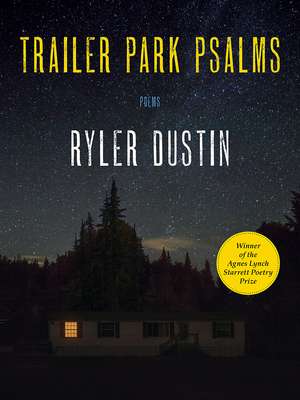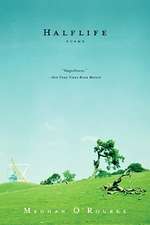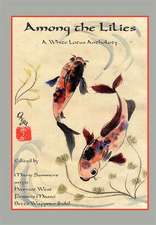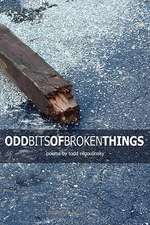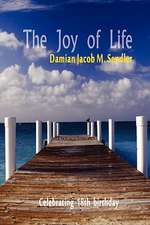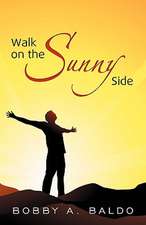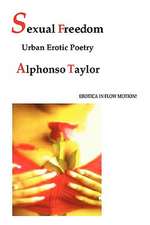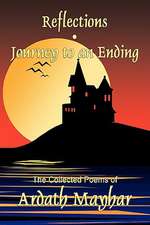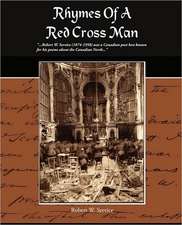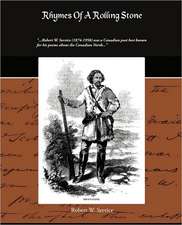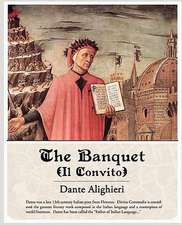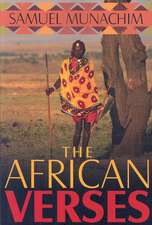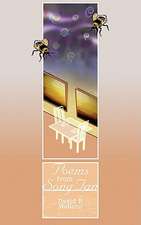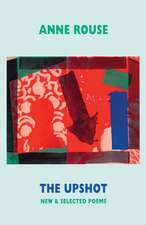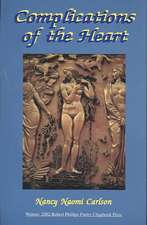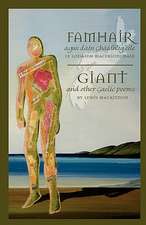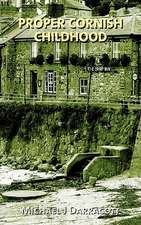Trailer Park Psalms: Poems: Pitt Poetry Series
Autor Ryler Dustinen Limba Engleză Paperback – 12 sep 2023
Trailer Park Psalms traces the speaker’s journey beyond his boyhood trailer park, through an American landscape marked by violence—from a gas line explosion in his hometown to his father’s war memories to the scars of colonialism inscribed in place, language, and ecology. Along the way, he searches for sources of awe that might inspire us, even in a compromised world: the everyday miracle of eyesight, the courage of the Voyager spacecrafts, and the “clumsy kindness” of family members trying to mend the damages of the past. In the end, what he finds isn’t faith but the hope that “if there’s a heaven, we will bend / to examine our old selves / and wonder how something so delicate / was ever allowed.”
Din seria Pitt Poetry Series
-
 Preț: 102.92 lei
Preț: 102.92 lei -
 Preț: 102.10 lei
Preț: 102.10 lei -
 Preț: 102.10 lei
Preț: 102.10 lei -
 Preț: 101.06 lei
Preț: 101.06 lei -
 Preț: 93.19 lei
Preț: 93.19 lei -
 Preț: 101.28 lei
Preț: 101.28 lei -
 Preț: 137.55 lei
Preț: 137.55 lei -
 Preț: 101.86 lei
Preț: 101.86 lei -
 Preț: 100.00 lei
Preț: 100.00 lei -
 Preț: 102.92 lei
Preț: 102.92 lei -
 Preț: 101.28 lei
Preț: 101.28 lei -
 Preț: 101.86 lei
Preț: 101.86 lei -
 Preț: 101.06 lei
Preț: 101.06 lei -
 Preț: 101.06 lei
Preț: 101.06 lei -
 Preț: 101.86 lei
Preț: 101.86 lei -
 Preț: 103.09 lei
Preț: 103.09 lei -
 Preț: 105.19 lei
Preț: 105.19 lei -
 Preț: 101.86 lei
Preț: 101.86 lei -
 Preț: 112.40 lei
Preț: 112.40 lei -
 Preț: 102.27 lei
Preț: 102.27 lei -
 Preț: 101.06 lei
Preț: 101.06 lei -
 Preț: 101.69 lei
Preț: 101.69 lei -
 Preț: 103.33 lei
Preț: 103.33 lei -
 Preț: 138.61 lei
Preț: 138.61 lei -
 Preț: 101.06 lei
Preț: 101.06 lei -
 Preț: 101.86 lei
Preț: 101.86 lei -
 Preț: 102.10 lei
Preț: 102.10 lei -
 Preț: 101.28 lei
Preț: 101.28 lei -
 Preț: 140.01 lei
Preț: 140.01 lei -
 Preț: 102.51 lei
Preț: 102.51 lei -
 Preț: 103.09 lei
Preț: 103.09 lei -
 Preț: 90.75 lei
Preț: 90.75 lei -
 Preț: 100.65 lei
Preț: 100.65 lei -
 Preț: 100.24 lei
Preț: 100.24 lei -
 Preț: 122.71 lei
Preț: 122.71 lei -
 Preț: 101.28 lei
Preț: 101.28 lei -
 Preț: 103.33 lei
Preț: 103.33 lei -
 Preț: 106.01 lei
Preț: 106.01 lei -
 Preț: 101.06 lei
Preț: 101.06 lei -
 Preț: 102.27 lei
Preț: 102.27 lei -
 Preț: 91.79 lei
Preț: 91.79 lei -
 Preț: 135.69 lei
Preț: 135.69 lei -
 Preț: 91.79 lei
Preț: 91.79 lei -
 Preț: 101.28 lei
Preț: 101.28 lei -
 Preț: 100.24 lei
Preț: 100.24 lei -
 Preț: 104.15 lei
Preț: 104.15 lei -
 Preț: 101.86 lei
Preț: 101.86 lei -
 Preț: 100.65 lei
Preț: 100.65 lei -
 Preț: 100.41 lei
Preț: 100.41 lei -
 Preț: 99.83 lei
Preț: 99.83 lei
Preț: 91.16 lei
Nou
Puncte Express: 137
Preț estimativ în valută:
17.45€ • 17.87$ • 14.51£
17.45€ • 17.87$ • 14.51£
Carte disponibilă
Livrare economică 26 februarie-12 martie
Preluare comenzi: 021 569.72.76
Specificații
ISBN-13: 9780822967125
ISBN-10: 082296712X
Pagini: 72
Dimensiuni: 152 x 229 x 20 mm
Greutate: 0.13 kg
Editura: University of Pittsburgh Press
Colecția University of Pittsburgh Press
Seria Pitt Poetry Series
ISBN-10: 082296712X
Pagini: 72
Dimensiuni: 152 x 229 x 20 mm
Greutate: 0.13 kg
Editura: University of Pittsburgh Press
Colecția University of Pittsburgh Press
Seria Pitt Poetry Series
Recenzii
"There’s a rural charm and sense of danger lurking in Trailer Park Psalms, but it is exactly the perpetual threat of poverty and violence that make the pieces sing."
—Adriana E. Ramírez, Pittsburgh Post-Gazette
“Ryler Dustin’s poems achieve a clear and accessible quality, not through the simplicity of idea or emotion (for his poems are rich with surprising language and complex sentiment) but through his remarkable facility with syntax. Indeed, his elegant sentences convey feeling with vulnerability and sensitivity, while achieving what can only be called pure music. The ingenious metaphors in Trailer Park Psalms manage to contain the contradictory and conflicting emotions that come with loss, nostalgia, humor, and the effort to cope with the wounds of a complicated personal history.” —Kwame Dawes, author of UnHistory with John Kinsella
“Word by word, Ryler Dustin creates a world, complete with its ditches and flames and warnings, as well as the lovers and friends and family who walk briefly through it. These are poems of love and ferocious need, and what is loved is all-encompassing, from a stolen cigarette to a wayward star. This is a voice from an American wilderness, one that has echoes of Whitman, in its largeness and its heart.” —Nick Flynn, author of I Will Destroy You
“Although the poems in Trailer Park Psalms range widely (from a hardscrabble trailer park in the Pacific Northwest to London to the very edge of our galaxy), they are united by Ryler Dustin’s fine intelligence and his mastery of image and tone. These poems meditate on the persistence of memory, the difficulties of love, and the curiosities of ecology with real clarity, always offering us voyages toward knowledge, awe, and an invigorated sense of self.” —Kevin Prufer, author of The Art of Fiction: Poems
“The poems in Ryler Dustin’s Trailer Park Psalms radiate with ache, pull us toward the awe of memory and love and the holy ringing only a body can make. If Dustin is right, and ‘love . . . means to make a space for this wrecked world inside us,’ then this collection is a profound act of love, offering the wrecked world inside us a tender home, an exquisite language with which to make itself known.” —Stacey Waite, author of Butch Geography
“What I have loved about Ryler Dustin’s poems since I first heard him read them in Bellingham, Washington back in 2007, is the way they are offered with a gentle quiet that gives way to the quiet in me. The poems in this collection are no different; how his reflections on memory and place within the Pacific Northwest call to how we fit in the worlds that surround us, similar as how a walk in the forest allows us to join the conversation of silence that passes between the trees.” —Anis Mogjani, Poet Laureate of Oregon and two-time Individual National Poetry Slam Champion
—Adriana E. Ramírez, Pittsburgh Post-Gazette
“Ryler Dustin’s poems achieve a clear and accessible quality, not through the simplicity of idea or emotion (for his poems are rich with surprising language and complex sentiment) but through his remarkable facility with syntax. Indeed, his elegant sentences convey feeling with vulnerability and sensitivity, while achieving what can only be called pure music. The ingenious metaphors in Trailer Park Psalms manage to contain the contradictory and conflicting emotions that come with loss, nostalgia, humor, and the effort to cope with the wounds of a complicated personal history.” —Kwame Dawes, author of UnHistory with John Kinsella
“Word by word, Ryler Dustin creates a world, complete with its ditches and flames and warnings, as well as the lovers and friends and family who walk briefly through it. These are poems of love and ferocious need, and what is loved is all-encompassing, from a stolen cigarette to a wayward star. This is a voice from an American wilderness, one that has echoes of Whitman, in its largeness and its heart.” —Nick Flynn, author of I Will Destroy You
“Although the poems in Trailer Park Psalms range widely (from a hardscrabble trailer park in the Pacific Northwest to London to the very edge of our galaxy), they are united by Ryler Dustin’s fine intelligence and his mastery of image and tone. These poems meditate on the persistence of memory, the difficulties of love, and the curiosities of ecology with real clarity, always offering us voyages toward knowledge, awe, and an invigorated sense of self.” —Kevin Prufer, author of The Art of Fiction: Poems
“The poems in Ryler Dustin’s Trailer Park Psalms radiate with ache, pull us toward the awe of memory and love and the holy ringing only a body can make. If Dustin is right, and ‘love . . . means to make a space for this wrecked world inside us,’ then this collection is a profound act of love, offering the wrecked world inside us a tender home, an exquisite language with which to make itself known.” —Stacey Waite, author of Butch Geography
“What I have loved about Ryler Dustin’s poems since I first heard him read them in Bellingham, Washington back in 2007, is the way they are offered with a gentle quiet that gives way to the quiet in me. The poems in this collection are no different; how his reflections on memory and place within the Pacific Northwest call to how we fit in the worlds that surround us, similar as how a walk in the forest allows us to join the conversation of silence that passes between the trees.” —Anis Mogjani, Poet Laureate of Oregon and two-time Individual National Poetry Slam Champion
Notă biografică
Ryler Dustin has represented Seattle on the final stage of the Individual World Poetry Slam, and his poems appear in outlets like Verse Daily, Gulf Coast, and The Best of Iron Horse. He is the author of Heavy Lead Birdsong from Write Bloody Publishing. A graduate of the MFA program at the University of Houston and the PhD program at the University of Nebraska–Lincoln, he has lived in Michigan, Spain, the Jack Kerouac House in Orlando, and an off-grid cabin in Oregon. He recently moved back to his hometown of Bellingham, Washington.
Extras
FIRST STAR
It is here, in the empty lot across from K-Mart, dusk falling on the cusp of summer, that you realize you love her. She has asked you to teach her to drive, you lied about having a license, and your mother’s Metro is not cut out for this, how she kills the clutch again and again as you brace your bodies against the dash, laughing. You are not cut out for it, either—the way she jokes with the boys at your lunch table, grin flashing, hair black as volcanic glass. You cannot ease the ache her body makes in yours no matter what you do, even when you are making love behind her mother’s leaky apartment, or lying in the damp grass after, watching geese sign their mysterious arrow overhead. Soon her father will vanish again, her mother remarry and take her to Georgia. On the phone she’ll talk about pills she’s started and a man she met at church, her voice fading in the sound of traffic. But blink now and you are back in the empty lot—blink and you are in the brimming grass, wet, watching the geese neck ever on. Tell her again they have needles in their noses, like compasses, guiding them to where they must go. Say you can see Sirius, the first star, though you know she is already sleeping like something crash-landed, unfathomable, from an even deeper distance—her breasts below the coat you both share, her wrists so defenseless that the world, for the first time, frightens you—and you begin, in that light, to know what it is.
TRAILER PARK PSALM
Bless us, Lord of corrugated tin,
of crooked windows held against the wind
with mold-dark duct tape, of roofs repaired
in rain that would not let up.
Bless us, Lord of all that patches, holds,
is good enough—plywood, foil, fast-dry foam,
my grandma’s hands that worked
our wood stove chimney back to shape.
Bless us, Lord of the mildewed scent
my grandma raised me in—
of carpets singed by cigarettes,
ashtrays made from Folgers tins,
Hamburger Helper and discount meat
in cedar-shadowed kitchens.
Bless us, Lord, as we were back then:
a pack of knobby boys on bikes,
girls with creosote-lined eyes
and smiles slick with gloss.
Bless our uncooked Northwest skins,
ghost white except for Ian’s,
who called out, How, white man
and punched whoever laughed.
Bless Jake, his red hair lighting the street
on the night his trailer burned—
he fled with his bike, a bag of CDs,
his stepdad’s .44. Bless Jorie
whose twin sisters died
and came back as raccoons.
Bless John, who chewed dry cat food
as he swaggered up the gravel strip.
Bless blackberries fat with summer rain,
dark as blood from thumbs we pricked.
Bless bracken, birch, Douglas fir,
the nettle’s electric ache.
Bless the sword fern’s dusty seeds
that ease a nettle’s sting. Bless the cedars
we climbed at dusk until our trailers
looked like toys. Bless Rick in the woods
with his butterfly knife, slicing only rain,
unfolding his blade with flourishes
he gave religious names—Heaven’s Sword,
Angel’s Teeth, Handshake with God.
Bless the possums who spoke in tongues
at night in the neighbor’s trash.
Bless Dick, eyes emptied by a war
we were too young to know,
who guarded the mail, cigarette unlit,
always on patrol. Bless the dark
of Northshore Road, where Jake hid
as his trailer burned, where his mother
had crashed their pickup truck
in snow the year before.
Bless the firs that tried to stop her.
Bless Jake, Lord, he went to war.
Bless Jorie, who left for Mexico
and Ian, who said she was heading west
though we lived as west as you could go.
SONG FOR VOYAGERS
You, the farthest objects we have ever touched, now venture beyond that place where the sun’s wind gives way...
—Ann Druyan
After school, I’d sit where failing shops gave way
to water and woods, gripping a sci-fi book
from the free box outside Henderson’s,
watching sun recede in passing clouds
then swell until the bay glowed like green glass.
No one noticed me on the abandoned trestle
that ran along the pulp mill’s graffitied walls
and firs that sank soundlessly into shade.
If someone came—the drunk lady, the two sisters
picking blackberries, the boys on bikes with greasy hair—
I kept quiet except to share what my grandmother knew,
that a woman planted the berries as she train-hopped west.
I stayed as long as the light lasted, reading novels
set among alien suns and the windless dark between galaxies,
past planets that glowed like the bay’s far freighters—
redshifted or neon green—my pages dog-eared
by someone else. Wheel of Winds, Planet of Adventure :
one person writes a story, another gives it away
and a boy who finds it in the bottom of a box
reads it aloud, walking home in his corduroy coat,
the first snow falling like the passage of stars—
like photos from the spacecraft on the news that year,
a probe that rushed past Pluto, clutching a phonograph
of humpbacks, human songs, infant heartbeats
and our planet’s fragile, shifting weather—
so wind and whales and Chuck Berry would be found
by beings unfathomably far away, long after
we had vanished, or grown
into something unimaginable.
It is here, in the empty lot across from K-Mart, dusk falling on the cusp of summer, that you realize you love her. She has asked you to teach her to drive, you lied about having a license, and your mother’s Metro is not cut out for this, how she kills the clutch again and again as you brace your bodies against the dash, laughing. You are not cut out for it, either—the way she jokes with the boys at your lunch table, grin flashing, hair black as volcanic glass. You cannot ease the ache her body makes in yours no matter what you do, even when you are making love behind her mother’s leaky apartment, or lying in the damp grass after, watching geese sign their mysterious arrow overhead. Soon her father will vanish again, her mother remarry and take her to Georgia. On the phone she’ll talk about pills she’s started and a man she met at church, her voice fading in the sound of traffic. But blink now and you are back in the empty lot—blink and you are in the brimming grass, wet, watching the geese neck ever on. Tell her again they have needles in their noses, like compasses, guiding them to where they must go. Say you can see Sirius, the first star, though you know she is already sleeping like something crash-landed, unfathomable, from an even deeper distance—her breasts below the coat you both share, her wrists so defenseless that the world, for the first time, frightens you—and you begin, in that light, to know what it is.
TRAILER PARK PSALM
Bless us, Lord of corrugated tin,
of crooked windows held against the wind
with mold-dark duct tape, of roofs repaired
in rain that would not let up.
Bless us, Lord of all that patches, holds,
is good enough—plywood, foil, fast-dry foam,
my grandma’s hands that worked
our wood stove chimney back to shape.
Bless us, Lord of the mildewed scent
my grandma raised me in—
of carpets singed by cigarettes,
ashtrays made from Folgers tins,
Hamburger Helper and discount meat
in cedar-shadowed kitchens.
Bless us, Lord, as we were back then:
a pack of knobby boys on bikes,
girls with creosote-lined eyes
and smiles slick with gloss.
Bless our uncooked Northwest skins,
ghost white except for Ian’s,
who called out, How, white man
and punched whoever laughed.
Bless Jake, his red hair lighting the street
on the night his trailer burned—
he fled with his bike, a bag of CDs,
his stepdad’s .44. Bless Jorie
whose twin sisters died
and came back as raccoons.
Bless John, who chewed dry cat food
as he swaggered up the gravel strip.
Bless blackberries fat with summer rain,
dark as blood from thumbs we pricked.
Bless bracken, birch, Douglas fir,
the nettle’s electric ache.
Bless the sword fern’s dusty seeds
that ease a nettle’s sting. Bless the cedars
we climbed at dusk until our trailers
looked like toys. Bless Rick in the woods
with his butterfly knife, slicing only rain,
unfolding his blade with flourishes
he gave religious names—Heaven’s Sword,
Angel’s Teeth, Handshake with God.
Bless the possums who spoke in tongues
at night in the neighbor’s trash.
Bless Dick, eyes emptied by a war
we were too young to know,
who guarded the mail, cigarette unlit,
always on patrol. Bless the dark
of Northshore Road, where Jake hid
as his trailer burned, where his mother
had crashed their pickup truck
in snow the year before.
Bless the firs that tried to stop her.
Bless Jake, Lord, he went to war.
Bless Jorie, who left for Mexico
and Ian, who said she was heading west
though we lived as west as you could go.
SONG FOR VOYAGERS
You, the farthest objects we have ever touched, now venture beyond that place where the sun’s wind gives way...
—Ann Druyan
After school, I’d sit where failing shops gave way
to water and woods, gripping a sci-fi book
from the free box outside Henderson’s,
watching sun recede in passing clouds
then swell until the bay glowed like green glass.
No one noticed me on the abandoned trestle
that ran along the pulp mill’s graffitied walls
and firs that sank soundlessly into shade.
If someone came—the drunk lady, the two sisters
picking blackberries, the boys on bikes with greasy hair—
I kept quiet except to share what my grandmother knew,
that a woman planted the berries as she train-hopped west.
I stayed as long as the light lasted, reading novels
set among alien suns and the windless dark between galaxies,
past planets that glowed like the bay’s far freighters—
redshifted or neon green—my pages dog-eared
by someone else. Wheel of Winds, Planet of Adventure :
one person writes a story, another gives it away
and a boy who finds it in the bottom of a box
reads it aloud, walking home in his corduroy coat,
the first snow falling like the passage of stars—
like photos from the spacecraft on the news that year,
a probe that rushed past Pluto, clutching a phonograph
of humpbacks, human songs, infant heartbeats
and our planet’s fragile, shifting weather—
so wind and whales and Chuck Berry would be found
by beings unfathomably far away, long after
we had vanished, or grown
into something unimaginable.
